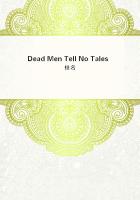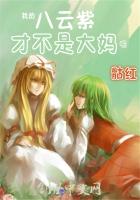It would be difficult to imagine a form of entertainment more tempting than was offered in this picturesque inn. In addition to the first, the entire second floor of the building had been thrown into one large room, the walls covered with a thousand sketches, caricatures, and crayon drawings by hands since celebrated the world over. A piano, with many chairs and tables, completed the unpretending installation. Here, during a couple of hours each evening, either by the piano or simply standing in their places, the young poets gave utterance to the creations of their imagination, the musicians played their latest inspirations, the RACONTEUR told his newest story. They called each other and the better known among the guests by their names, and joked mutual weaknesses, eliminating from these gatherings every shade of a perfunctory performance.
It is impossible to give an idea of the delicate flavor of such informal evenings - the sensation of being at home that the picturesque surroundings produced, the low murmur of conversation, the clink of glasses, the swing of the waltz movement played by a master hand, interrupted only when some slender form would lean against the piano and pour forth burning words of infinite pathos, - the inspired young face lighted up by the passion and power of the lines. The burst of applause that his talent called forth would hardly have died away before another figure would take the poet's place, a wave of laughter welcoming the new-comer, whose twinkling eyes and demure smile promised a treat of fun and humor. So the evening would wear gayly to its end, the younger element in the audience, full of the future, drinking in long draughts of poetry and art, the elders charmed to live over again the days of their youth and feel in touch once more with the present.
In this world of routine and conventions an innovation as brilliantly successful as this could hardly be inaugurated without raising a whirlwind of jealousy and opposition. The struggle was long and arduous. Directors of theatres and concert halls, furious to see a part of their public tempted away, raised the cry of immorality against the new-comers, and called to their aid every resource of law and chicanery. At the end of the first year Salis found himself with over eight hundred summonses and lawsuits on his hands. After having made every effort, knocked at every door, in his struggle for existence, he finally conceived the happy thought of appealing directly to Grevy, then President of the Republic, and in his audience with the latter succeeded in charming and interesting him, as he had so many others. The influence of the head of the state once brought to bear on the affair, Salis had the joy of seeing opposition crushed and the storm blow itself out.
From this moment, the poets, feeling themselves appreciated and their rights acknowledged and defended, flocked to the "Sacred Mountain," as Montmartre began to be called; other establishments of the same character sprang up in the neighborhood. Most important among these were the "4 z'Arts,"
Boulevard de Clichy, the "Tambourin," and La Butte.
Trombert, who, together with Fragerolle, Goudezki, and Marcel Lefevre, had just ended an artistic voyage in the south of France, opened the "4 z'Arts," to which the novelty-loving public quickly found its way, crowding to applaud Coquelin CADET, Fragson, and other budding celebrities. It was here that the poets first had the idea of producing a piece in which rival CABARETS were reviewed and laughingly criticised.
The success was beyond all precedent, in spite of the difficulty of giving a play without a stage, without scenery or accessories of any kind, the interest centring in the talent with which the lines were declaimed by their authors, who next had the pleasant thought of passing in review the different classes of popular songs, Clovis Hugues, at the same time poet and statesman, discoursing on each subject, and introducing the singer; Brittany local songs, Provencal ballads, ant the half Spanish, half French CHANSONS of the Pyrenees were sung or recited by local poets with the charm and abandon of their distinctive races.
The great critics did not disdain to attend these informal gatherings, nor to write columns of serious criticism on the subject in their papers.
At the hour when all Paris takes its APERITIF the "4 z'Arts" became the meeting-place of the painters, poets, and writers of the day. Montmartre gradually replaced the old Latin Quarter; it is there to-day that one must seek for the gayety and humor, the pathos and the makeshifts of Bohemia.
The "4 z'Arts," next to the "Chat Noir," has had the greatest influence on the taste of our time, - the pleiad of poets that grouped themselves around it in the beginning, dispersing later to form other centres, which, in their turn, were to influence the minds and moods of thousands.
Another charming form of entertainment inaugurated by this group of men is that of "shadow pictures," conceived originally by Caran d'Ache, and carried by him to a marvellous perfection. A medium-sized frame filled with ground glass is suspended at one end of a room and surrounded by sombre draperies. The room is darkened; against the luminous background of the glass appear small black groups (shadows cast by figures cut out of cardboard). These figures move, advancing and retreating, grouping or separating themselves to the cadence of the poet's verses, for which they form the most original and striking illustrations. Entire poems are given accompanied by these shadow pictures.














